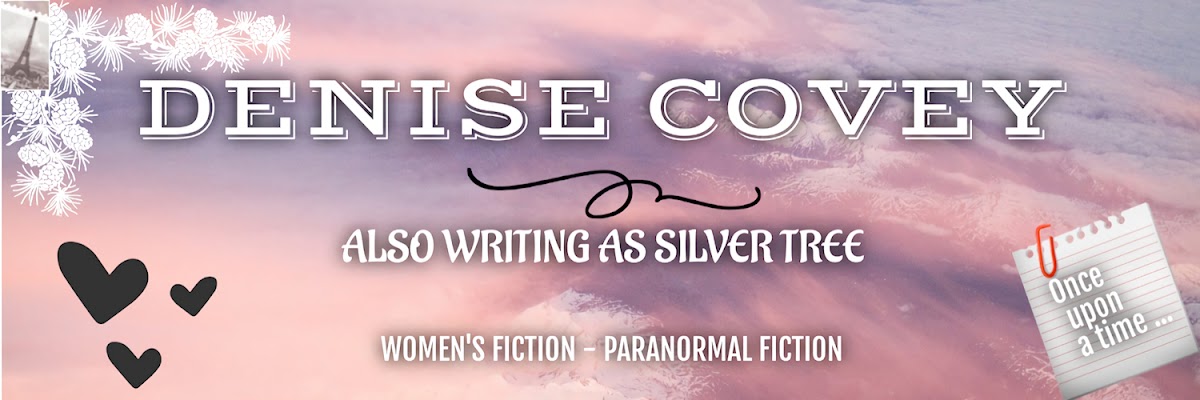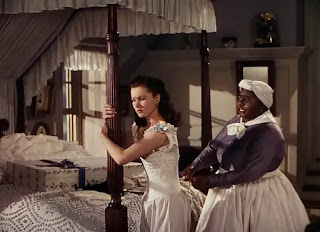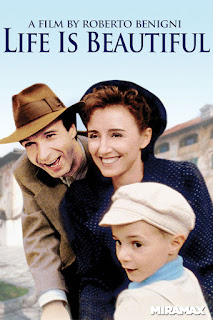Hello all!
WEP is back! After some kerfuffle, Team WEP has come together again. We temporarily lost a team member, Laura, but gained one in Sonia Dogra. This year is going to be Bigger, Bolder, Better! We thank Alex J Cavanaugh, IWSG Ninja, for promoting our first challenge for the year and will continue to do so, and C Lee McKenzie from the IWSG for her Facebook promo posts.
Olga Godim, badge maker extraordinaire, has been busy since December, dreaming up badges and creating a new header for our new-look website.
All team members have been involved in many creative discussions regarding how WEP will look going forward. Read all about our changes and new structure HERE.
This enduring supportive online writing community contest is here to help writers hone their writing muscles by regularly writing to prompts. Bring us your WIP, your non-fiction, your poetry, your flash fiction! Get instant feedback on your writing or if you're the outright winner for a challenge, you receive a critique from an editor or published author. February's prize is a first chapter critique from IWSG's L Diane Wolf. Also, bonus - all three winners each prompt will be invited to submit to a WEP Anthology of the Best of WEP, 2023.
So, today we get this year-long party started. This is the Year of Movies at WEP.
As it's Valentine's month, our first prompt is based on the movie, the controversial Gone With the Wind. If you'd like to submit to the challenge, go HERE for ideas. You've got until February 17 to post an entry.
So, here is my entry, an op-ed, something different to my usual flash fiction.
From deepest darkness comes enduring light.
Gone
With the Wind - Love
and loss, a nation mortally divided, a people forever changed.
A sign in my local
library says – “A truly great library has something in it to offend everyone”.
That is true of the novel, Gone With the Wind (GWTW). Some find it offensive, some find
it wonderful. At its core, it is a turbulent love
affair between a manipulative, brave, woman, (Scarlett O’Hara) and a rogue,
(Rhett Butler) against the fiery backdrop of the American Civil War.
The author Margaret
Mitchell lived in Atlanta where at one time, 1 in 5 residents were slaves. A
journalist passionate about American history, over ten years she gathered war
stories from the Civil War. The result? GWTW. In its first year, it went
through 31 printings and sold over a million copies – that was 60 years ago. For
decades it has trailed only the Bible on best-seller lists, so it endures
like Scarlett O’Hara.
For this WEP prompt,
we’re using the film version, the biggest grossing movie of all time (adjusted for inflation), and Academy Award winner for 1940. Producer, David O Selznick, faithfully followed the book's premise
- not to yield, suffer
or be beaten down.
GWTW is one of my favorite films. There. I. Said. It. A blogger once attacked me for my view, citing its glorification of slavery. I thought, hang on, it doesn’t glorify slavery, rather it has shaped popular understanding of the American Civil War and Reconstruction. It is never okay to buy and sell human beings, but the book and movie reflect a time when not everyone shared this view.
That blogger wasn’t alone in her view. 80 years after its release, the “Woke Ness Monster” arose from the deep to announce GWTW, the movie, had given slavery a cinematic gloss-over and should be "canceled". No. We learn from the past; we can’t just erase it. GWTW opens a window to how things were in America at the time of writing. The North against slavery; the South passionately for it. Generally.
Slavery. What word describes
such a blight on humanity?
Evil is one word that
comes to mind. Impossible not to make comparisons with the Holocaust which saw
over 6 million slain, yet today we have a movement denying it ever happened. Cancel
culture at work. It is believed that 12 million Africans were abducted as part
of the slave trade and few deny how hapless human beings, if they survived the trip, were used by white
settlers themselves enslaved … by greed.
But from deepest darkness comes enduring light.
We’ve seen in movies how
the plantation slaves sang Negro spirituals, songs like He's Got the Whole
World in His Hand, to
motivate them. Life on earth sucked, but they believed in redemption.
As did one white British slave
trader.
Did you know that John
Newton, who penned most everybody’s favorite hymn, Amazing Grace, was part
of this vicious trade in the 1700s? Thankfully, his carefree acceptance of
slave trading waned; his guilt led to good and his journey to redemption. He
studied for the priesthood, and in 1773, gave the first rendition of the
world’s most readily identified hymn. “Amazing grace, how sweet the sound that
saved a wretch like me…” he intoned in his ordination sermon. The song stemmed
from his third and final voyage servicing the Triangle Trade where he decided
without doubt that slavery was evil.
We know slaves were used as free labor on cotton plantations, sold and put to work across long days with avoiding brutal punishment and starvation their only motivation. Slaves on the Tara plantation were generally happy and loved their masters. This was not altogether uncommon, with many slaves reluctant to accept emancipation at the end of the Civil War.
Understandably, many African Americans took offense at the image of happy slaves and brought their protests onto the streets in front of theaters where GWTW was playing.
Back to Newton. On his redemptive journey, he worked tirelessly to have the slave trade abolished in Britain. In the words of Prime Minister William Pitt, “The greatest stigma on our national character which ever yet existed, is about to be removed!” Newton achieved this, along with peers like Wilberforce and Pitt, in 1792.
Newton died months after
Britain abolished slavery, but his redemptive song endures.
Meanwhile, in America, abolition
was not so easy. The issue of slavery drove four bloody years of Civil War. The
last Confederate slave was not freed until 1865. The Civil Rights bill was not enacted
until a century after the war, but equality still eludes many black Americans to
this day.
A dozen years after the
Civil War, Edison invented the phonograph, and Amazing Grace was
recorded. A thousand versions followed, unifying the music and the words, twice
reaching million-seller status.
But perhaps the most famous rendition was begun by Barack Obama in 2015 as he gave the eulogy for South Carolina senator Clementa Pinckney, the youngest black man to be elected in that state – some believed he might one day be president – who was shot after he pleaded for police to be fitted with body cameras after the brutal shooting of black man Walter Scott. Overwhelmed by the sadness and waste, Obama twice spoke the words “Amazing Grace”. His mellow baritone then intoned the five notes that make up those words and the audience rose as one to complete Newton’s 1773 sermon. I saw it on live television and will never forget it. So recently we had the eulogy for Tyre Nichols, who, despite police body cameras, was brutally slain, this time mainly by black police. Is equality gone with the wind? Or can we believe and hope that somehow out of darkness can come a thing of beauty.
FURTHER READING:
The Long Battle over Gone With the Wind – New York Times
Gone With the Wind: Is it really Nostalgic? – The Saturday Evening Post
Song of Redemption - the Weekend Australian, January 7 - 8, 2023
I hope you weren't offended by my article. I'd love to have your opinion.
If you're enjoying the February WEP, consider joining us in April. Get ideas HERE. If you do the A - Z, you can merge it with the day's letter. Plenty have done this.



%20(1).jpg)






21 comments:
Hi Denise. Thank you for this essay on GWTW. Things in the past have been brutally wrong and they continue to do so. Art must show us the right path, but it also must shoulder the responsibility of presenting society as it is. For that is how, as you said, we will learn from our mistakes. Having said that, I also think that a writer/artist cannot control how their writing is perceived by the readers. To maintain a balance is tough, but that shouldn't deter one from presenting facts.
I liked the tagline very much. Thank you.
Sonia
Thanks for the comment, Sonia. Was difficult to write and I'm sure some of the comments will be difficult to read, but I'm ready. Looking forward to your entry in the first round as a member of Team WEP.
I thought with Obama, America was on its way to something better. Then, Trump happened, and all the nuts came out. It grieves me, as it did my northern ancestors to fought on the Union side. As a Star Trek fan, I'd like to believe that humanities future is more in line with that vision. But, living in the insanity that is America today, I don't see it happening anytime soon. You pretty much covered it all.
Nancy
Thank you Nancy. The whole world is pretty much in a mess, not just America, but it's all terribly sad.
Great post, Denise. Very timely and passionate.
Thank you Olga.
Thank you for your thoughtful essay that brings forth the background surrounding how popular culture has changed (and not changed) in the years since the Civil War. I didn't see Barack Obama recite/sing "Amazing Grace," but your words catch the emotional impact and give a very strong context for this month's WEP topic. I'm looking forward to reading what others have written.
Thank you, Denise. I absolutely loved your passionate defence of GWTW. Revisionist history and this weird craze to makeover things we do not like about our past is just beyond baffling to me. Erasing the past, banning books/films, shooting authors and cartoonists - how does it help to right injustices that are happening now? Do something about those, people! instead of getting yourselves in knots about GWTW or toppling statues or demolishing places of worship, while all the time there are millions of refugees fleeing war zones, people being trafficked and a million other injustices. Right wingers are eroding democratic freedoms and minority rights all around the world.
Coming back to GWTW yes, it does portray happy slaves in Tara. That does not mean it is defending slavery or glorifying it. It is called historical fiction for a reason. It is not the responsibility of the author to educate the reader on accurate, comprehensive history, that's the job of the historians and the reader's own responsibility to read and distinguish between fiction and fact. But as they say a little knowledge is dangerous - place is teeming with 'experts' of little knowledge nowadays.
I must say I also totally adored reading a non-fiction entry from you. Superb!:)
Beth, glad I could paint you into this picture. Perhaps you will read GWTW again one day with a different attitude.
Nila, I fully intended to write my usual flash fiction, but was haunted by the idea of a defense of GWTW, as I expect it will get a lot of flak this challenge...or maybe not. I'm certainly not on the side of revisionist history. What is the point? We're supposed to learn from the past, but do we?
Hi,
A very passionate defense of GWTW. That's your opinion and you're entitled to it. I have seen the film and read the book. I was born in the south and have experienced the injustices that have been done to people of color. I heard Barrack Obama sing Amazing Grace and shook my head because there are so many black singers who sang that song much better than him and they haven't got any recognition. But Barrack was President of the United States and that title made him look like he was the first black that has ever sung the song.
I have seen slavery not only among black people but among people of all nationalities that find themselves living in countries where they are a minority. So, what am I trying to say? Slavery is not an American problem. It is a world problem where people are raised to think that they are better than everyone else. And that happens in every country on this earth.
Shalom shalom
Hi Denise - I hate to admit ... but I've neither read the book, nor seen the film ... one day I'll catch up! I do read other things re barbarians from all eras ... sadly nothing new, and even now: most definitely nothing new.
Excellent write up ... I particularly liked "We learn from the past; we can’t just erase it." You're so right ... so much we need to understand and accept - as long as we're not doing it today - which of course needs to be eradicated ... why we can't live where the welfare of the people, animals and care of the land rank higher than people's need for greed - I do not know ... there are more thoughtful, kind people in the world than the barbaric ones.
We must learn and read about all peoples past and present - this is a great post - thank you ... cheers Hilary
(Looks like my first comment disappeared)
We certainly have a lot to learn from our past. Humans can always seem to find a reason for hate - and often that reason is greed.
I hope we're making steps forward because we need to be better.
We can't erase history. We have to remember what happened.
Slavery is still very real today, both in Africa and in many countries dealing in sex slaves. Sadly, it happens here as well.
I know some of American history, but not all. Thanks to this essay, I now know more, Denise. Thank you.
Slavery and racism is never okay, and how they're portrayed in books and movies will often have different kinds of feedback. To me, no matter what the portrayal, I think the attempts are important because that leads to discussion and action, the only way to true change.
We need those discussions now as much as a hundred years ago.
I was not offended by your article.
I think people forget that The New World (America) is not the only nation to enslave a people. Slavery has gone on for thousands of years, and is also depicted in the Bible. I like your reference to"Cancel culture at work." I don't agree with slavery, don't think I do. But as a white person, I have no idea how I would react to slaves of that time. But to delete all historical references to slavery is also to render it non-existent. There are a lot of individuals (including the race of caucasions) who disagreed with slavery so much that they assisted in freeing slaves. And many "slaves" fought to free their people. Don't deny history like it didn't happen. Celebrate the progress.
An excellent article on the movie theme Denise. The culture was abhorent by todays standards, but I'm really glad some "black" people were allowed to depict the culture of the times, and explore the changes.
Thanks for hosting such a controversial subject for the prompt. We all need to think about our past, and how it has shaped our present.
I hate this commenting system. I'm sure no one comes back to read replies, so I'll just say a big thank you for coming by and for generously commenting, whether you were offended or not.
I'm glad that most of you agree the past is the past, the present is different, but some old attitudes inform our choices today.
@Pat - I've emailed you.
A most interesting post. So much in history has been whitewashed, and now, even today, education is being attacked by politicians and the far right. The world, as Pat says, must act together. Are we tilting at windmills?
I'd like to think that just opening it all up for discussion will make a change, even in the tiniest way!
@Yolanda - I agree. Although it's quite hard to discuss these things. Honesty can get you into trouble.
I haven't read the book or seen the whole film, just snippets here and there. Slavery of any kind is wrong but we have to remember the times the book was written in. I agree history cannot be deleted, we can only learn from it.
I very much am not a fan of cancel culture. I share your opinion that history should not be erased or edited because if it's gone, there is nothing to learn from.
I have never read or seen Gone With The Wind all the way through as it's just so very long LOL!
@Sally - yes the times were so different, but I don't think white supremacy is gone.
@Kyra - Both film and book are long, but worth it to me.
Post a Comment